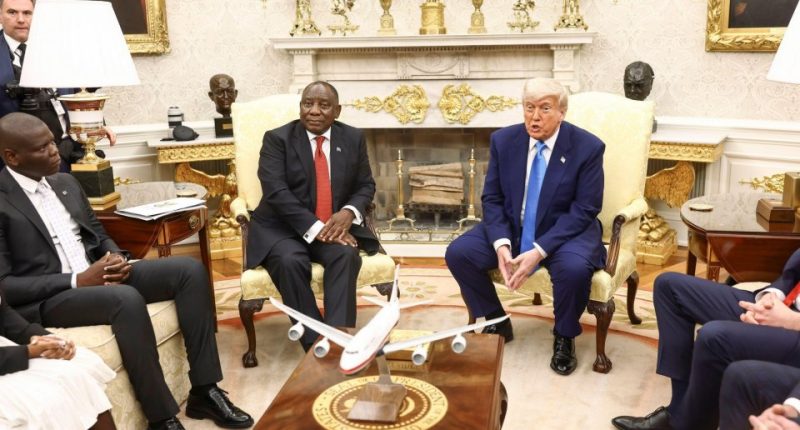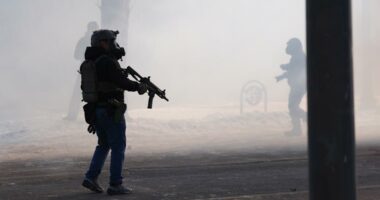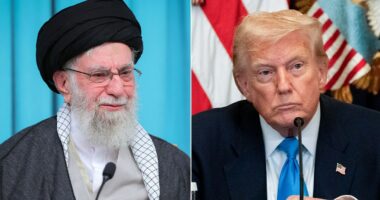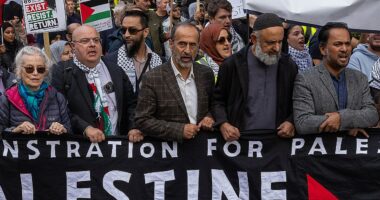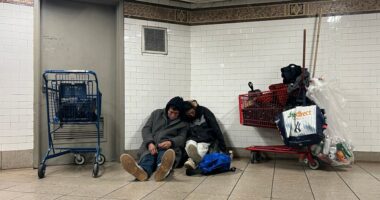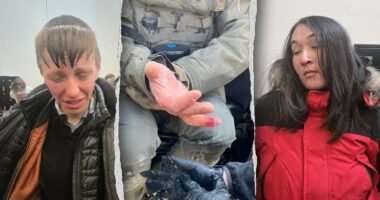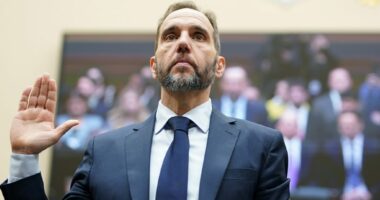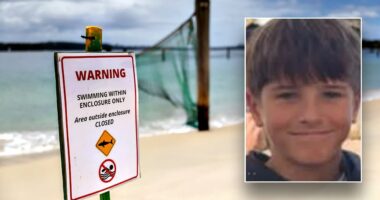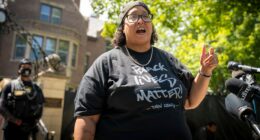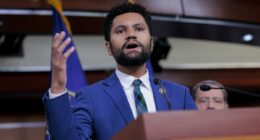Share this @internewscast.com
During a meeting with South African President Cyril Ramaphosa at the White House, President Donald Trump presented an unusual video as evidence to support his assertion that a “genocide” is happening against white farmers in South Africa.
Trump dimmed the lights and silenced President Ramaphosa to present a contentious video of an event where South Africans were singing a song that seemed to incite violence.
The meeting on Wednesday was an opportunity for Trump to directly challenge Ramaphosa about allegations concerning the South African government’s handling of crimes against white farmers.
South Africa has strongly denied all of the allegations, and Ramaphosa asked for the meeting to fix the relationship between the US and South Africa.
The chat started friendly as Trump complimented the South African golfers that Ramaphosa brought to the Oval Office.
Then, Trump played a video that he said showed evidence of a genocide of white farmers in South Africa.
The video showed a rally from last year where attendees chanted “Kill the Boer, the farmer,” which is an inflammatory anti-apartheid song.
Ramaphosa tried to speak to Trump while the clip started to play, but Trump pointed at the video, telling him to pay attention.
After the video ended, Trump showed printouts of articles that he claimed showed evidence of the alleged genocide.
“Death, death, death,” the president said as he flipped through the pages.
Trump said the video showed the graves of thousands of white farmers.
Ramaphosa said he hadn’t seen the video before and that he would like to find out more information about it.
He said there was crime in South Africa, but that the majority of victims were Black.
“The farmers are not Black,” Trump responded.
After the meeting, Trump said he wasn’t totally sure if there was a genocide happening in South Africa or not.
Trump has cut off foreign aid to South Africa based on the claims, which stem from a land reform law.
He recently offered refuge to white Afrikaners based on their claims that they were racially discriminated against.
Pretoria, South Africa’s executive capital, denied the claims.
